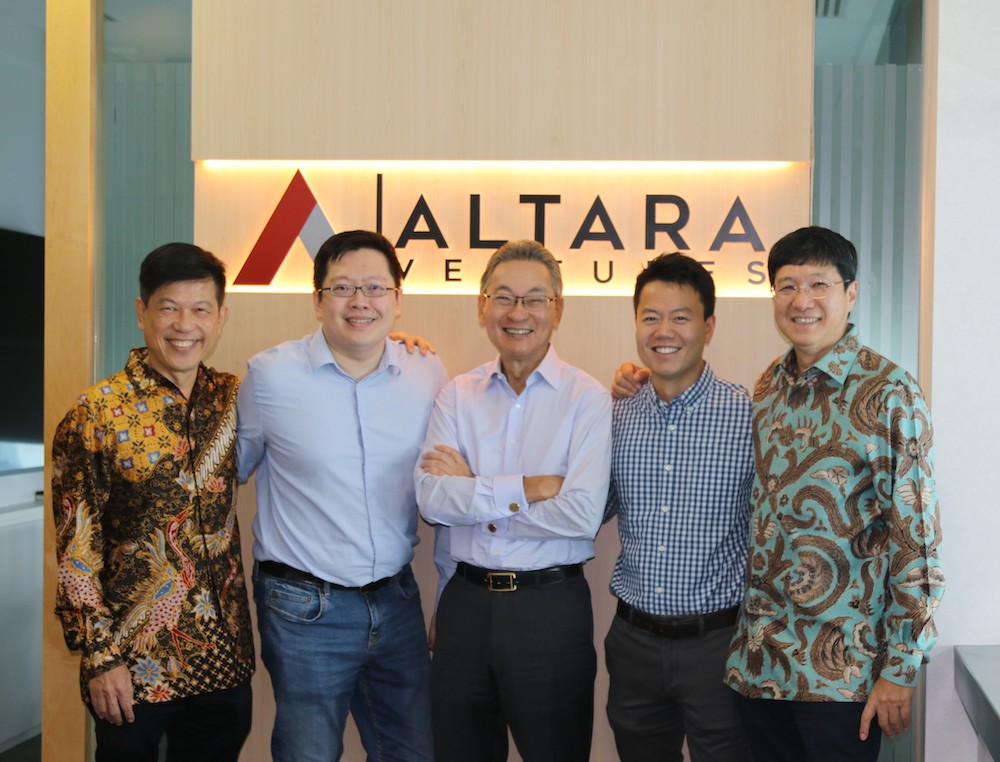Founded in 2020, Altara Ventures is a Singapore-based VC that focuses on early stage startups in Southeast Asia. Investing in sectors such as fintech, consumer, enterprise software, logistics, healthcare, and education technology, the company recently raised USD 130 million for its inaugural fund. To date, Altara Ventures has backed seven companies including Vietnamese edtech company Clevai, Malaysian insurtech firm PolicyStreet, Philippine digital bank platform Tonik, and Singapore-based neobank operator StashFin.
The VC is led by five general partners, including investment and tech veterans Koh Boon Hwee, Tan Chow Boon, and Seow Kiat Wang, as well as Gavin Teo and Dave Ng, who were both previously with B Capital Group, an investment firm built in partnership with Boston Consulting Group.
KrASIA recently spoke to Tan and Teo about the company’s investment strategy and startup trends in Southeast Asia.
KrASIA (Kr): You’ve recently announced the successful closing of your USD 130 million debut fund, which the firm will use to invest in “next generation tech founders.” Tell us more about the profile of these startup entrepreneurs.
Tan Chow Boon (TCB): The startup scene in the region has evolved in the past ten years. Former employees from big companies like Gojek, Grab, and Traveloka have been starting their own businesses. For instance, Indonesian freelancing platform Sampingan, which is in our investment portfolio, is founded by two former Gojek executives.
By “next generation tech founders,” I’m referring to entrepreneurs who have gained experience from working in technology startups and understand how to build a business from scratch. This category also includes people returning from global tech hubs like Silicon Valley who are using their skills and experiences to start a new company in their homeland.
Kr: What is Altara’s investment philosophy? What are your thoughts on early-stage investment in Southeast Asia today?
Gavin Teo (GT): Our investment philosophy is one that adopts a long-term view of how technology is transforming Southeast Asia’s business landscape. We believe Southeast Asia is still very much an early-stage market. If you look at Indonesia beyond Jakarta, or Vietnam beyond Ho Chi Minh City, you’ll see dozens of startups being set up, so there is no shortage of opportunities. For this debut fund, we expect to invest in 20 to 25 companies across the region. Our initial check size is USD 2.5 million to USD 3 million, and about USD 5 million to USD 8 million for follow-on financing.
TCB: We also look at cross-border investment in companies with the potential to expand within the region as well as globally. Startups in Southeast Asia need to think about how to grow into multinational companies early on. This is certainly the case for startups in Singapore, where the domestic economy is too small, which means that they need to enter other markets quickly.
Kr: What are some areas that you are excited about right now?
GT: We’ve seen lots of activity in consumer sectors, especially e-commerce, in the past five years. I think we’ll continue to see demand in consumer internet service, e-commerce enablement and logistics, as well as financial services, especially payments and lending, over the next two to three years.
In the next five years, we expect to see more progress in B2B solutions and advanced technology in areas such as healthcare, education, and enterprise solutions. The progression from B2C to business-to-business-to-consumer (B2B2C) and B2B is something that we’ve seen play out in the United States, China, and India. That development is now in our region as well.
Kr: What are some investment trends in the region that you find interesting?
GT:Generally, Southeast Asia is open for business, although we’re still dealing with the pandemic. As the US-China divide becomes more evident, capital that used to flow from the US to China and vice versa is now moving to other places. Our region is receiving much of these funds.
Many global funds are also making strategic investments in growth-stage startups more frequently. This has helped us to look at the future with more certainty and to design a better investment plan. The entire ecosystem is maturing. With companies like Sea Group and Grab already listed and trading in the US, we’ll expect to see more startups follow suit. The public market activity in 2022 will be exciting.
